Brad Bartkowski
 President & Founder, Orion Fleet Intelligence
President & Founder, Orion Fleet Intelligence
Brad leads channel development at Orion, overseeing the Company’s partnerships and programs within the insurance industry. As founder, Brad has filled a variety of leadership roles at Orion, including sales / business development, product development, and client services. Brad received his Bachelors of Science in Mechanical Engineering and Business management degrees from Lehigh University, where he also minored in Entrepreneurship.
Richard Bishop
 Bishop Consulting, Task Force on Automated Driving and Platooning with the American Trucking Association
Bishop Consulting, Task Force on Automated Driving and Platooning with the American Trucking Association
Richard Bishop has over 25 years of experience in the domain of intelligent, connected, and automated vehicles and how these interact with our transportation system and society. He provides global trends analysis and research strategy development to a wide range of vehicle manufacturers, technology developers, startups, and government agencies around the world. He currently serves as chair of the American Trucking Association’s Task Force on Automated Driving and Platooning. Prior to establishing Bishop Consulting in 1997, Mr. Bishop was Program Manager for Vehicle-Highway Automation at the USDOT Federal Highway Administration.
Bill Brentar
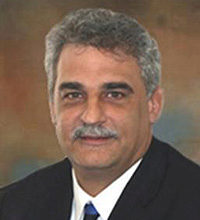 Sr. Director of Maintenance and Engineering Class 8 Transportation Fleet, UPS
Sr. Director of Maintenance and Engineering Class 8 Transportation Fleet, UPS
As Director of Maintenance and Engineering for UPS, Bill is responsible for purchasing, engineering and maintenance of the UPS Class 8 fleet in North America which currently totals over 18,000 tractors, 98,000 trailers and 17,000 dollies. He also has responsibility of Tire Management as well as Paint, Body and Vehicle markings for the Global UPS fleet.
As UPS works to reduce its carbon footprint, Bill is instrumental in continuing to drive growth of the UPS alternative fuel fleet with the planned addition of almost 800 natural gas powered over-the-road tractors and 10 new or updated CNG refueling stations, by the end of 2018.
He was a leader of the team to deploy Natural Gas at UPS in its Class 8 fleet which began in 2013 and currently accounts for 25% of its class 8 fleet and travels 6.5 million miles per week. These efforts continue in addition to efforts to advance new technology and advanced safety systems throughout the Class 8 fleet.
Bill joined UPS in 1985 as an automotive technician, in 1989 he was promoted into supervision as a fleet supervisor in Bessemer, MI. After several operational assignments within automotive, he eventually became a District Automotive manager, holding that position in four different Districts throughout the US. In 2010 he accepted his current position as the Sr. Director of Maintenance and Engineering for North America in Atlanta, GA.
Bill is a member of the Society of Automotive Engineers, American Trucking Association, CALSTART, and is a Member with Valley of the Sun United Way.
, UPS
As Director of Maintenance and Engineering for UPS, Bill is responsible for purchasing, engineering and maintenance of the UPS Class 8 fleet in North America which currently totals over 18,000 tractors, 98,000 trailers and 17,000 dollies. He also has responsibility of Tire Management as well as Paint, Body and Vehicle markings for the Global UPS fleet.
As UPS works to reduce its carbon footprint, Bill is instrumental in continuing to drive growth of the UPS alternative fuel fleet with the planned addition of almost 800 natural gas powered over-the-road tractors and 10 new or updated CNG refueling stations, by the end of 2018.
He was a leader of the team to deploy Natural Gas at UPS in its Class 8 fleet which began in 2013 and currently accounts for 25% of its class 8 fleet and travels 6.5 million miles per week. These efforts continue in addition to efforts to advance new technology and advanced safety systems throughout the Class 8 fleet.
Bill joined UPS in 1985 as an automotive technician, in 1989 he was promoted into supervision as a fleet supervisor in Bessemer, MI. After several operational assignments within automotive, he eventually became a District Automotive manager, holding that position in four different Districts throughout the US. In 2010 he accepted his current position as the Sr. Director of Maintenance and Engineering for North America in Atlanta, GA.
Bill is a member of the Society of Automotive Engineers, American Trucking Association, CALSTART, and is a Member with Valley of the Sun United Way.
Jon DeGaynor
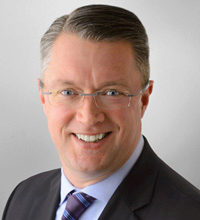 President, Chief Executive Officer and Director, Stoneridge
President, Chief Executive Officer and Director, Stoneridge
Mr. DeGaynor was appointed as President and Chief Executive Officer in March 2015. Prior to joining Stoneridge, Mr. DeGaynor served as the Vice President-Strategic Planning and Innovation of Guardian Industries Corp., (“Guardian”), a manufacturer of industrial glass and other building products for commercial, residential and automotive applications, from October 2014. From 2008-2014, Mr. DeGaynor served as Vice President-Business Development, Managing Director Asia for SRG Global, Inc., a Guardian company and manufacturer of chrome plated parts for the automotive, commercial truck and consumer goods industries. Mr. DeGaynor served as Chief Operating Officer, International for Autocam Corporation, a manufacturer of precision-machine components for the automotive industry, from 2005-2008. Prior to that, Mr. DeGaynor held positions of increasing responsibility with Delphi Corporation from 1993-2005.
Bill Driegert
 Director, Uber Freight
Director, Uber Freight
Bill Driegert is the Director of Uber Freight, managing all P&L responsibilities for the newest business line at Uber. Prior to joining Uber, he was advising Otto, the autonomous trucking startup acquired by Uber, while COO at Pillow Homes. He spent time at Amazon as Director of Planning and Innovation with oversight over new initiatives in final mile delivery and truckload. Bill also was a founding team member of Coyote Logistics, most recently as their Chief Innovation Officer before they were acquired by UPS. He started his career building race-cars in Vermont before joining PepsiCo to start a more glamorous career in logistics. Bill lives in Tiburon, CA with his wife and 2 children and in his limited free-time still enjoys tinkering on old cars and motorcycles.
Charles Fine
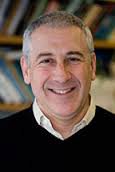 Chrysler Leaders for Global Operations Professor of Management, MIT Sloan School of Management
Chrysler Leaders for Global Operations Professor of Management, MIT Sloan School of Management
Professor of Operations Management and Engineering Systems
Charles H Fine is the founding President and Dean of the Asia School of Business in Kuala Lumpur, Malaysia, a collaboration between the MIT Sloan School of Management and Bank Negara Malaysia, the country’s central bank. For more than 30 years at MIT Sloan, Professor Fine has taught MBA and Executive Education courses in Operations Strategy, Supply Chain Management, Quality Management, and Innovation. He led the collaboration between MIT Sloan and the Indian School of Business on manufacturing curriculum development (2011-14), and was a founding co-director of MIT’s Tata Center for Technology and Design (2012) and its Communications Futures Program (2002). He previously served as co-director of MIT’s International Motor Vehicle Program (1993-1998).
Professor Fine’s recent research focuses on the development of principles for entrepreneurial companies to build operations strategies and capabilities consistent with their business objectives. His previous work addressed strategic supply chain design principles for fast-clockspeed manufacturing and service industries.
Professor Fine has an AB in Mathematics and Management Science from Duke University, and an MS in Operations Research and a PhD in Business Administration (Decision Sciences) from Stanford University. He is the author of Clockspeed: Winning Industry Control in the Age of Temporary Advantage, Perseus Books, 1998. His work, on quality management, flexible manufacturing, supply chain management, and operations strategy, has also appeared in a variety of leading publications.
Takahiro Fujimoto
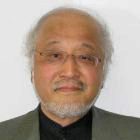 Professor, Faculty of Economics, University of Tokyo
Professor, Faculty of Economics, University of Tokyo
Takahiro Fujimoto’s long-term research objectives have been technology and operation management. More specifically, in three areas: production management, product development, and suppliers management. In production management, he made functional and evolutionary analyses of the so-called Toyota-style manufacturing system. Also, a study of paint body storage management, which reflects firms’ organizational capabilities in manufacturing, is now making progress. In product development, he studied impacts of three-dimensional CAD (digital information technologies) on lead time reduction, as well as inter-industrial comparison of effective product development. In suppliers management, key properties of the Japanese suppliers system and their institutional complementarity, as well as historical implication of black box parts and modularization, have been investigated empirically.
Brett Fusco
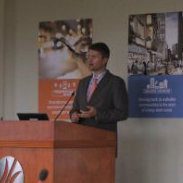 Assistant Manager, Long-Range Planning, Delaware Valley Regional Planning
Assistant Manager, Long-Range Planning, Delaware Valley Regional Planning
Brett Fusco is the Assistant Manager of Long-Range Planning at the Delaware Valley Regional Planning Commission. In this position, he’s conducted numerous regional what-if scenario analyses, worked on funding and financial planning issues, and a variety of key policy papers such as Networking Transportation. He was instrumental in forming the Futures Group, an interdisciplinary working stakeholder expert group that analyzes how change is reshaping Greater Philadelphia.
Sarah Light
 Assistant Professor of Legal Studies & Business Ethics, The Wharton School
Assistant Professor of Legal Studies & Business Ethics, The Wharton School
Sarah E. Light is an Assistant Professor of Legal Studies and Business Ethics at the Wharton School at the University of Pennsylvania, where she teaches Environmental Management, Law, and Policy. She has also taught at Penn Law School and Columbia University.
Light’s research examines issues at the intersection of environmental law and innovation. Her articles have addressed the regulatory implications of the rise of transportation platforms like Uber and Lyft, as well as autonomous vehicles; and the U.S. military’s role in stimulating private technological innovation to reduce fossil fuel use in what Light has called The Military-Environmental Complex. Her articles have appeared in and are forthcoming in the Yale Law Journal, the UCLA Law Review, the Vanderbilt Law Review, the Emory Law Journal and the Stanford Environmental Law Journal, among others.
Previously, Light served for ten years as an Assistant United States Attorney for the Southern District of New York, Civil Division, and for four years as the Chief of the Office’s Environmental Protection Unit. Light earned her J.D. from Yale Law School, an M. Phil in Politics from Oxford University where she was a Rhodes Scholar, and an A.B. in Social Studies magna cum laude from Harvard College.
John Paul MacDuffie
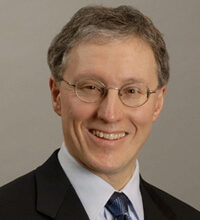 Director, PVMI
Director, PVMI
Professor of Management, The Wharton School
Prof. MacDuffie’s research examines the diffusion of lean or flexible production as an alternative to mass production; the impact of human resource systems and work organization on economic performance; collaborative problem-solving within and across firms; the impact of distance on managing human and social capital; the relationship between product and organizational architecture; and how the interaction of strategic choices with industry structure affects competitive dynamics and industry evolution.
Prof. MacDuffie’s global research on the determinants of high-performance manufacturing is featured centrally in the books The Machine That Changed the World and After Lean Production: Evolving Employment Practices in the World Auto Industry. His publications can be found in top academic journals across a wide range of domains, including Global Strategy Journal, Human Relations, Industrial and Corporate Change, Industrial and Labor Relations Review, Journal of International Business Studies, Journal of Operations Management, Management Science, Organization Studies, Production and Operations Management, and Strategic Management Journal, and also in practitioner-oriented journals such as California Management Review and Harvard Business Review.
Prof. MacDuffie’s commentaries on the global automotive industry and trends in employment systems are featured in the New York Times, Wall Street Journal, Washington Post, Bloomberg Business Week, Fortune, and on National Public Radio and Knowledge@Wharton. He is a founding board member of the Industry Studies Association and a member of the Automotive Experts Group at the Federal Reserve Bank.
Rahul Mangharam
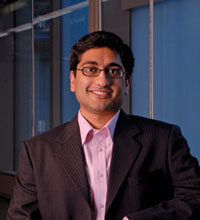 Associate Professor, Department of Electrical and Systems Engineering, University of Pennsylvania
Associate Professor, Department of Electrical and Systems Engineering, University of Pennsylvania
Rahul Mangharam is an Associate Professor in the Department of Electrical and Systems Engineering at the University of Pennsylvania. He is a founding member of the PRECISE Center and directs mLAB – Real-Time and Embedded Systems Lab at Penn. His interests are in cyber-physical systems which involves the tight coupling of communication, computation and control with physical systems. His current focus is on applications within medical devices, energy efficient buildings, automotive systems and industrial wireless control networks.
Rahul received the 2016 US Presidential Early Career Award (PECASE), the 2014 IEEE Benjamin Franklin Key Award, 2013 NSF CAREER Award, 2012 Intel Early Faculty Career Award and was selected by the National Academy of Engineering for the 2012 US Frontiers of Engineering.
Rahul’s group has won several awards: 2016 DoE CleanTech Prize (Regional), SRC TECHCON 2015, IPSN 2012, RTAS 2102, Intel Innovators Award 2012, World Embedded Programming Competition 2012 and 2010, Honeywell Industrial Wireless Award 2011, and Google Zeitgeist Award 2011.
Rahul received his Ph.D. in Electrical & Computer Engineering from Carnegie Mellon University where he also received his MS and BS. In 2002, he was a member of technical staff in the Ultra-Wide Band Wireless Group at Intel Labs. He was an international scholar in the Wireless Systems Group at IMEC, Belgium in 2003. He has worked on ASIC chip design at FORE Systems (1999) and Gigabit Ethernet at Apple Computer Inc. (2000). He was the Stephen J. Angelo Term Chair Assistant Professor at the University of Pennsylvania from 2008-2013.He also holds a secondary appointment in the Department of Computer and Information Sciences.
John Moavenzadeh
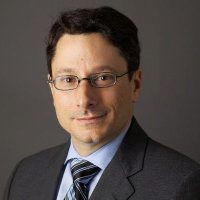 Senior Director, World Economic Forum
Senior Director, World Economic Forum
John Moavenzadeh is the senior director at Mobility Industries and an officer of the World Economic Forum USA. Based in Geneva, Switzerland, the World Economic Forum is an independent international organization committed to improving the state of the world by engaging leaders in partnerships to shape global, regional, and industry agendas.
As an officer of the World Economic Forum USA, the Forum’s U.S.-based affiliate, Moavenzadeh shares leadership for the 100 Forum staff based in New York. Moavenzadeh’s responsibilities include engaging CEOs and business leaders from the automotive, logistics and supply chain, aviation, travel, and tourism industries in projects and processes to advance strategic global issues. He has contributed to reports and initiatives on topics ranging from trade facilitation to connected and smart transportation to supply chain resilience.
Prior to joining the Forum, Moavenzadeh was executive director of the International Motor Vehicle Program (IMVP), an international research consortium focused on the global automotive industry founded at the Massachusetts Institute of Technology in 1980. Prior to joining IMVP, Moavenzadeh served as a director with the World Economic Forum in Geneva, Switzerland, from 1999 to 2003. Moavenzadeh was an associate with Booz Allen Hamilton’s international transportation practice from 1996 to 1999, and a product design engineer with Ford Motor Company from 1990 to 1994.
Moavenzadeh holds a BS in mechanical engineering from Carnegie Mellon University, an MS in mechanical engineering from the University of Michigan, and an MPP from Harvard University. He is a licensed professional engineer in the United States.
Scott Perry
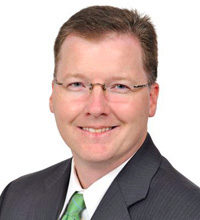 Chief Technology Officer, Ryder Systems Inc.
Chief Technology Officer, Ryder Systems Inc.
Scott Perry is Vice President of Supply Management and Global Fuel Products for the Fleet Management Solutions business segment of Ryder Systems, Inc.
In this position, Mr. Perry leads Ryder’s Vehicle Procurement, Parts Procurement, Warranty Operations, Inventory Planning and Management, and Corporate Real Estate functions for North American operations. Mr. Perry also carries direct responsibility for developing and deploying Ryder’s Global Fuel Products strategy which includes the company’s growing leadership position in the natural gas vehicle industry.
For most of the previous decade, Mr. Perry worked for Ryder’s Fleet Management Solutions division, starting as a General Manager. He held a variety of leadership roles, including Director of Operations responsible for fleet maintenance operations.
Mr. Perry joined Ryder in 1990, working for the Company’s Integrated Logistics business while completing his undergraduate degree. Upon graduation, he joined Ryder full time, assuming positions of increasing responsibility including Operations Manager, Logistics Manager, and ultimately Group Logistics Manager, where he took on responsibility for multiple customer operations across the country.
Mr. Perry holds an MBA from the University of Tennessee and a Bachelor of Arts degree from Jacksonville State University. His career with Ryder System, Inc. spans more than two decades, with extensive experience in vehicle maintenance operations, carrier and transportation management and warehouse operations.
Daniel Roos
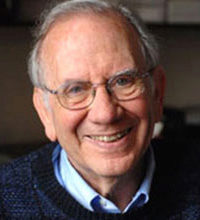 Founder, International Motor Vehicle Program
Founder, International Motor Vehicle Program
Japan Steel Industry Professor of Civil and Environmental Engineering and Engineering Systems, Emeritus, MIT
Daniel Roos has held numerous leadership positions at MIT including Director of the Center For Transportation Studies; Director of the Center For Technology, Policy, and Industrial Development; Director of The International Motor Vehicle Program; Founding Director of the Engineering Systems Division; and Director of the MIT Portugal Program. He has played a leading role in large scale MIT partnerships in England and Russia focusing on Innovation and Economic Development and he currently serves on the MIT International Advisory Committee. Professor Roos is co-author of The Machine That Changed the World, which established the lean production concept and co-author of Engineering Systems: Meeting Human Needs in a Complex Technological World. Prof. Roos has performed extensive consulting assignments around the world for government and industry. He served for 11 years as consultant to the World Economic Forum helping to organize the annual Auto Governors Meeting at the World Economic Forum Annual Meeting in Davos, Switzerland. He recently led a major initiative in Alberta, Canada focusing on Innovation, Entrepreneurship and Applied Research.
Dave Schaller
 Industry Engagement Director, NACFE
Industry Engagement Director, NACFE
Dave Schaller is the Industry Engagement Director for the North American Council for Freight Efficiency (NACFE). His responsibilities include interfacing with fleets and suppliers, writing reports, conducting workshops, giving presentations, maintaining NACFE’s fleet database, running the social media groups as well as analyzing monthly metrics. He holds a Bachelor of Science degree in Electrical Engineering from the Purdue University and a Master of Business Administration degree from Ball State University. As a Navistar employee for 27 years, he held positions in production design, research, program management, dealer sales training, marketing, product line management, and strategic product planning. His travels allowed him to meet with fleets in 5 different countries. Prior to Navistar, he was a controls engineer for United Technologies. Dave holds four US patents and has written several SAE papers and other publications.
Nicolaj Siggelkow
 Co-director, Mack Institute for Innovation Management
Co-director, Mack Institute for Innovation Management
David M. Knott Professor of Management, The Wharton School
Nicolaj Siggelkow is the David M. Knott Professor at the Wharton School, University of Pennsylvania. He is a Co-Director of the Mack Institute for Innovation Management at Wharton. He studied Economics at Stanford University and earned an M.A. in Economics from Harvard University. He received a PhD in Business Economics from Harvard University and the Harvard Business School. Professor Siggelkow has been the recipient of multiple MBA and Undergraduate Excellence in Teaching Awards, including the Class of 1984 Award presented to the faculty member with the highest teaching rating in the MBA classroom, the Helen Kardon Moss Anvil Teaching Award, the Wharton Award, and the Wharton Graduate Association Student Choice Award. His research has been published in the leading management journals, including Academy of Management Journal, Administrative Science Quarterly, Journal of Industrial Economics, Management Science, Organization Science, and Strategic Organization. In 2008, he received the Administrative Science Quarterly Scholarly Contribution Award for the most significant paper published in ASQ five years earlier. Nicolaj is a member of the Editorial Review Boards of Administrative Science Quarterly, Organization Science, Strategic Management Journal, Strategic Organization, and Academy of Management Perspectives.
Josh Switkes
 Founder and CEO, Peloton
Founder and CEO, Peloton
Josh has been working on systems to make driving safer and more efficient for the last 13 years. After his work at Stanford University on a variety of vehicle control systems, including guaranteeing safety for lanekeeping assistance and steering wheel haptic feedback, Josh developed production control systems for Volkswagen, Audi, and Tula Technology. Josh is also an avid (but amateur) race car driver, cyclist and marathon runner, and is improving his commercial vehicle driving every day. Josh holds a PhD from Stanford University in Mechanical Engineering.
Christian Terwiesch
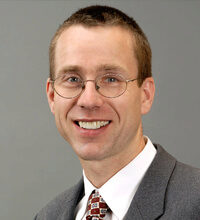 Co-director, Mack Institute for Innovation Management
Co-director, Mack Institute for Innovation Management
Andrew M. Heller Professor, The Wharton School
Professor of Operations, Information and Decisions
Professor of Health Policy, Perelman School of Medicine
Christian Terwiesch is the Andrew M. Heller Professor at the Wharton School of the University of Pennsylvania. He is a Professor in Wharton’s Operations, Information and Decisions department, co-director of Penn’s Mack Institute for Innovation Management, and also holds a faculty appointment In Penn’s Perelman School of Medicine. His research on Operations Management and on Innovation Management appears in many of the leading academic journals ranging from Management Science to The New England Journal of Medicine. He is an award winning teacher with extensive experience in MBA teaching and executive education.
Professor Terwiesch is the co-author of Matching Supply with Demand, a widely used text-book in Operations Management that is now in its third edition. Based on this book, Professor Terwiesch has launched the first Massive Open Online Course (MOOC) in business on Coursera. By now, well over 250,000 students enrolled in the course.
His latest book, Innovation Tournaments, was published by Harvard Business School Press. The novel, process-based approach to innovation outlined in the book was featured by BusinessWeek, the Financial Times, and the Sloan Management Review and has lead to innovation tournaments in organizations around the world.
Professor Terwiesch has researched with and consulted for various organizations. From small start-ups to Fortune 500 companies, he has helped companies become more innovative, often by implementing innovation tournament events and by helping to restructure their innovation portfolio.
Most of his current work relates to healthcare and innovation management. In the healthcare space, some of Professor Terwiesch recent projects include the design of patient centered care processes in the VA hospital system, the impact of emergency room crowding on hospital revenues and the patient experience at Penn Medicine, and the usage of patient portals and remote patient monitoring.
In addition to his teaching and his research, Professor Terwiesch is experimenting with a new career as a host of a national radio show on Sirius XM 111. Also, after 20 years of Ironman racing, he is trying to become a competitive rower, a transition that unfortunately turns out to be harder than expected.
Steve Viscelli
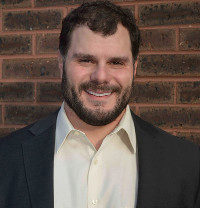 PVMI & Kleinman Center for Energy Policy, University of Pennsylvania
PVMI & Kleinman Center for Energy Policy, University of Pennsylvania
Steve Viscelli is an economic sociologist who studies organizations, labor markets and public policy. His work focuses on the decision-making and behavior of workers within complex transportation systems. Steve’s research is designed to contribute to academic knowledge and inform public policy. He works with a wide variety of public and private stakeholders to help address real-world problems in the areas of employment, transportation and energy policy.
Jamie Winebrake
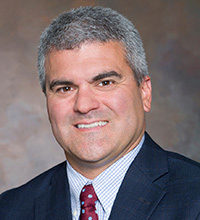 Dean, College of Liberal Arts, Rochester Institute of Technology
Dean, College of Liberal Arts, Rochester Institute of Technology
Dr. James Winebrake currently serves as the dean of the College of Liberal Arts at RIT. He works with the college’s faculty, staff and students to advance education and scholarship in the social sciences, humanities, and performing arts, while also promoting interdisciplinary initiatives across RIT’s nine colleges. One of his key initiatives is the integration of liberal arts and technology/engineering curricula at both the undergraduate and graduate levels.
Dr. Winebrake previously served as chair of RIT’s Department of Science, Technology and Society/Public Policy and has earned international recognition for his research on issues related to the environmental impacts of transportation, including health risk assessments, life-cycle analysis of alternative fuels, and analysis of policies aimed at reducing emissions in the transportation sector. He serves or has served on several National Academies of Science committees, the New York State Energy Planning Board, and other professional boards related to energy and environmental technology and policy.
In 2010 Dr. Winebrake was awarded the RIT Trustees Scholar Award in recognition of his scholarly contributions in the energy and environmental fields. He has also received numerous other research and teaching awards during his career, including the Madison Scholar Award and the Outstanding Teacher Award while serving as a faculty member at James Madison University in Virginia.
Dr. Winebrake received his PhD in Energy Management and Policy from the University of Pennsylvania. He also holds a B.S. in Physics from Lafayette College (Easton, PA) and an M.S. in Technology and Policy from the Massachusetts Institute of Technology (Cambridge, MA).
Flaura Winston
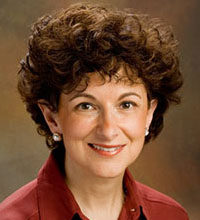 Director, Center for Child Injury Prevention Studies, Children’s Hospital of Pennsylvania
Director, Center for Child Injury Prevention Studies, Children’s Hospital of Pennsylvania
Flaura Koplin Winston, MD, PhD, is a board-certified pediatrician, a doctorally-trained engineer, and a public health researcher, who conducts research at the interface of child and adolescent health, injury, engineering and behavioral science. Dr. Winston’s work is published in peer-reviewed journals and conference proceedings and focuses on the area of traffic injury. Her research to action to impact approach, pragmatic rigor, has led to patents and a focus on evidence-based mobile health (mHealth) for better health. She is a professor of pediatrics at the University of Pennsylvania in Philadelphia and serves as the Scientific Director of the Center for Injury Research and Prevention at The Children’s Hospital of Philadelphia, Director of the National Science Foundation Industry/University Cooperative Research Center, the Center for Child Injury Prevention Studies (CChIPS), and Director of a National Science Foundation Research Experience for Undergraduates site.
Dr. Winston currently serves as an Associate Editor of Injury Prevention, has served on multiple US federal study sections, committees and advisory panels and held executive committee positions with the American Academy of Pediatrics and the Secretariat for the International Society for Child and Adolescent Injury Prevention. For her work, Dr. Winston has received funding from federal, state, corporate and non-profit foundation sources, with major funding from the National Science Foundation, the National Highway Traffic Safety Administration, the Maternal and Child Health Bureau, the State of Pennsylvania and State Farm Insurance Companies. She has received awards from a range of organizations which reflect her interdisciplinary background: American Society of Mechanical Engineers; American Academy of Pediatrics; the Governor’s Highway Safety Association; American Philosophical Society; National Highway Traffic Safety Administration; University of Pennsylvania; US Maternal and Child Health Bureau; Academy Health; Joint Commission on the Accreditation of Hospitals (JCAHO) & National Quality Forum; US Centers for Disease Control and Prevention; American Public Health Association; American Institute of Medical and Bioengineering; and Johns Hopkins University Society of Scholars. A sample of award-winning, evidence-based websites that highlight her work are: CHOP’s Car Seat Safety for Kids, Teen Driver Source, and After the Injury.
James P. Womack
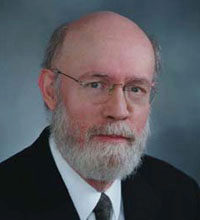 Founder, Lean Enterprise Institute
Founder, Lean Enterprise Institute
Research Director, International Motor Vehicle Program
Management expert James P. Womack, Ph.D., is the founder and senior advisor to the Lean Enterprise Institute, Inc., a nonprofit training, publishing, conference, and management research company chartered in August 1997 to advance a set of ideas known as lean production and lean thinking, based initially on Toyota’s business system and now being extended to an entire lean management system.
The intellectual basis for the Cambridge, MA-based Institute is described in a series of books and articles co-authored by Womack and Daniel Jones over the past 20 years. The most widely known books are: The Machine That Changed the World (Macmillan/Rawson Associates, 1990), Lean Thinking (Simon & Schuster, 1996), Lean Solutions (Simon & Schuster, 2005), and Seeing The Whole Value Stream (Lean Enterprise Institute, 2011). Articles include: “From Lean Production to the Lean Enterprise” (Harvard Business Review, March-April, 1994), “Beyond Toyota: How to Root Out Waste and Pursue Perfection” (Harvard Business Review, September-October, 1996), “Lean Consumption” (Harvard Business Review, March-April, 2005).
Womack received a B.A. in political science from the University of Chicago in 1970, a master’s degree in transportation systems from Harvard in 1975, and a Ph.D. in political science from MIT in 1982 (for a dissertation on comparative industrial policy in the U.S., Germany, and Japan). During the period 1975-1991, he was a full-time research scientist at MIT directing a series of comparative studies of world manufacturing practices. As research director of MIT’s International Motor Vehicle Program, Womack led the research team that coined the term “lean production” to describe Toyota’s business system.
Womack served as the Institute’s chairman and CEO from 1997 until 2010 when he was succeeded by John Shook.



